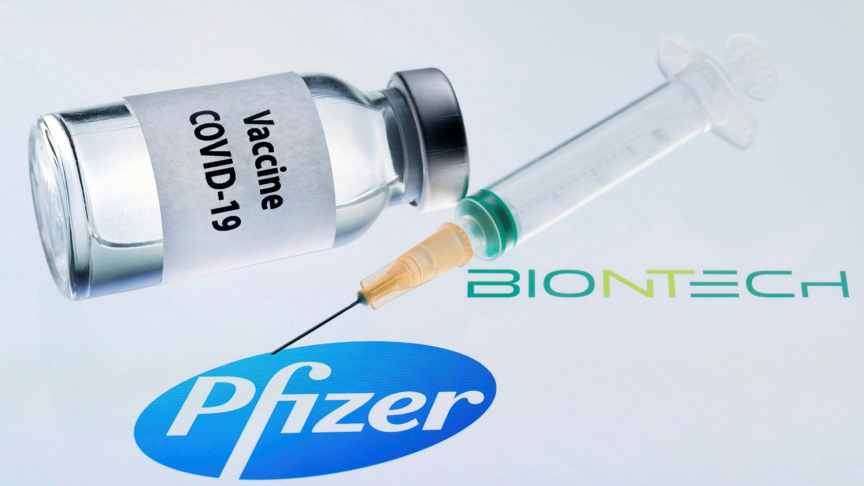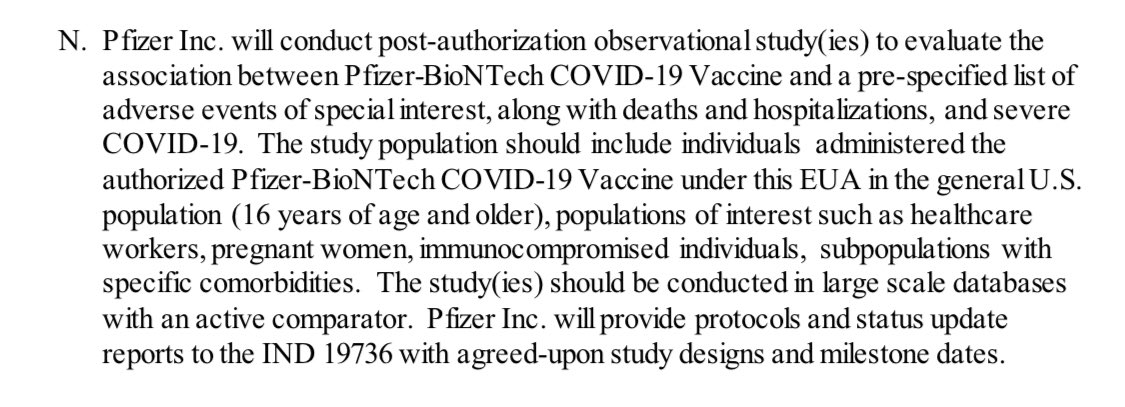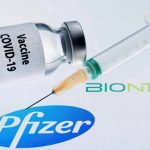Pfizer CEO not certain if vaccine will prevent transmission of coronavirus; also unclear if vaccinated people can still spread COVID-19 to others

The fact that you’re vaccinated does not mean you still cannot transmit the virus to other people. At this point, it is still unclear if the vaccines can prevent the spread of the coronavirus. That’s one of the takeaways from an interview Pfizer’s CEO Albert Bourla had with Dateline host Lester Holt. Another piece from the NY Times confirmed everyone’s worst fear. “The new vaccines will probably prevent you from getting sick with Covid. No one knows yet whether they will keep you from spreading the virus to others,” NY Times wrote.
Early this month, Pfizer’s chairman said that it’s not clear whether people who are vaccinated can still spread COVID-19. This begs the question: What’s the point of taking vaccines that don’t prevent you from transmitting the virus to others? The only reason healthy people should take the vaccines is so they can’t spread it to vulnerable people. If the vaccine doesn’t prevent transmission, then there’s no logical reason for anyone to take it.
In an interview with Dateline host Lester Holt, Pfizer chairman, and CEO Albert Bourla said it’s not clear if the company’s coronavirus vaccine will be able to stop the spread of the virus to other people. He said the company is not sure if someone can transmit the virus after vaccination. Bourla said:
Pfizer was “not certain” if the vaccine prevented the coronavirus from being transmitted.”
During the interview, Holt asked Bourla: “Even though I’ve had the protection, am I still able to transmit it to other people?” “I think this is something that needs to be examined. We are not certain about that right now with what we know,” Bourla answered.
For over 10 months now, we’ve all been waiting patiently for vaccines to provide us with some kind of immunity against the virus so people can return to their normal lives. Now that there is no assurance that vaccines can prevent the spread of the virus, no one knows sure when normal life will return.
In the meantime, we’ve learned a lot about the vaccine since Pfizer’s CEO made the statement ten days ago. Last Friday, the U.S. Food and Drug Administration (FDA) approved Pfizer’s COVID-19 vaccine for emergency use authorization (EUA). The announcement came just two days ago after the FDA admitted that 2 people had died from the phase 3 vaccine trial. The revelation about the deaths was buried on page 50 of a 90-page briefing document.
What’s also worth noting about the quick approval of the vaccine is that a day before the agency issued the EUA to Pfizer, 4 of the 17 FDA advisory panel voted against approving the Pfizer vaccine for general use, with one member abstaining.
“In a vote of 17 to 4 with one member abstaining, the panel recommended the approval of Pfizer and BioNTech’s coronavirus vaccine for emergency use, the last step before the FDA gives the final OK to broadly distribute the first doses throughout the United States.”
In addition, we are also just learning that the vaccines come with horrible side effects. Alex Berenson is a former NYT reporter and author of Tell Your Children and Unreported Truths about COVID-19 and Lockdowns. Unlike average Americans, Alex has spent a lot of his time reading the thousands of pages of FDA and CDC documents. Below is what Alex said on Twitter after reading through the latest FDA document and Pfizer vaccine data:
“I can’t say this more clearly: after a year of trust-destroying decisions from the public health bureaucracy, lying about the side effect profile of the @pfizer vaccine will do damage that can’t be fixed. The data are clear: many people will have very unpleasant side effects…“
I can’t say this more clearly: after a year of trust-destroying decisions from the public health bureaucracy, lying about the side effect profile of the @pfizer vaccine will do damage that can’t be fixed. The data are clear: many people will have very unpleasant side effects…
— Alex Berenson (@AlexBerenson) December 15, 2020
Berenson is not alone. Below is what Dr. James Todaro, (MD Medical Degree, Columbia University) said:
“For anyone considering the Pfizer vaccine, know that you are getting an EXPERIMENTAL vaccine. You are participating in a study looking for adverse events Think twice if you are under 50 yrs old with an IFR under 0.02%. Image below from the FDA’s EUA for the Pfizer vaccine.”
For anyone considering the Pfizer vaccine, know that you are getting an EXPERIMENTAL vaccine.
You are participating in a study looking for adverse events
Think twice if you are under 50 yrs old with an IFR under 0.02%.
Image below from the FDA’s EUA for the Pfizer vaccine. pic.twitter.com/MggbV8PBe5
— James Todaro, MD (@JamesTodaroMD) December 14, 2020

In November, Pfizer announced that its vaccine candidate had been shown to be more than 90 percent effective at preventing COVID-19 and has applied for emergency use authorization from the Food and Drug Administration (FDA).
Early last month, Pfizer and its partner BioNTech, announced that its COVID-19 vaccine offers 90% protection. After testing the vaccine on 43,500 people in 6 countries, the company said the vaccine showed no safety concerns.
Back in July, we wrote about Pfizer after the drug giant, and the biotech firm BioNTech reportedly improves immune responses in healthy patients. According to the study documented in a 16-page paper, researchers randomly assigned 45 patients to get one of three doses of the vaccine or placebo. Twelve received a 10 microgram dose, 12 a 30 μg dose, 12 a 100 μg dose, and nine a placebo. The 100 μg dose caused fevers in half of the patients; a second dose was not given at that level.





